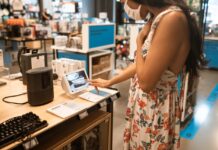As small brands navigate the complex world of digital marketing, influencer public relations (PR) has emerged as a powerful tool for reaching targeted audiences and building credibility. Unlike traditional advertising, which can feel intrusive and disconnected, influencer PR fosters authentic relationships between brands and consumers. This op-ed explores effective strategies for small brands to leverage influencer PR, focusing on collaboration, storytelling, and community engagement.
The Importance of Influencer PR for Small Brands
In an age where consumers are increasingly skeptical of traditional advertising, influencer PR provides a way for small brands to establish trust and authenticity. Influencers serve as intermediaries, sharing their genuine experiences with a brand’s products and services. This peer-to-peer recommendation model resonates with consumers, making them more likely to engage with a brand.
For small brands, influencer PR is particularly advantageous due to its cost-effectiveness and the potential for high returns. By partnering with influencers, small brands can reach niche audiences that align with their target demographics, increasing the chances of conversion and customer loyalty.
Building Effective Collaborations
Collaboration is the cornerstone of successful influencer PR. Small brands should prioritize finding influencers who share their values and vision. This alignment is essential for creating authentic content that resonates with the influencer’s audience.
Researching Potential Influencers
Small brands should invest time in researching potential influencers. This involves not only analyzing followers and engagement rates but also assessing the influencer’s content style and overall brand alignment. Tools like BuzzSumo, HypeAuditor, and social media analytics platforms can help brands identify influencers who are the best fit for their campaigns.
Once potential influencers are identified, small brands should approach them with a clear value proposition. This means articulating what the brand can offer in return for the influencer’s promotion, whether it’s monetary compensation, free products, or exclusive access to events.
Creating Win-Win Partnerships
Successful influencer partnerships are built on mutual benefit. Small brands should communicate their goals clearly while allowing influencers the creative freedom to develop content that feels authentic to their style. This collaboration fosters a sense of ownership and investment from the influencer, leading to more genuine and effective promotions.
Storytelling: The Heart of Influencer PR
Storytelling is a powerful tool in influencer PR, enabling brands to create emotional connections with their audience. Small brands should encourage influencers to share personal stories about their experiences with the brand’s products. These narratives not only engage followers but also showcase the brand’s values and mission.
Encouraging Authentic Narratives
When collaborating with influencers, brands should encourage them to share their stories in their own words. This approach ensures that the content feels authentic and relatable, resonating with the influencer’s audience. For example, an influencer might share how a skincare product transformed their routine or how a fitness brand’s apparel motivated them to achieve their goals.
Small brands can also leverage storytelling by creating a narrative around their own brand journey. Sharing the story of how the brand was founded, its mission, and the challenges faced can humanize the brand and foster a deeper connection with consumers.
Engaging with Communities
Influencer PR is not just about promoting products; it’s also about engaging with communities. Small brands should encourage influencers to interact with their followers, answering questions and fostering discussions about the brand. This engagement helps to create a sense of community and loyalty among consumers.
Hosting Live Events and Q&A Sessions
One effective way to engage with communities is by hosting live events or Q&A sessions on social media. Small brands can collaborate with influencers to organize virtual events where followers can ask questions, learn about products, and interact with the influencer in real-time. This not only enhances brand visibility but also builds a sense of community around the brand.
Measuring Impact and Success
As with any marketing strategy, measuring the impact of influencer PR campaigns is essential for small brands. By tracking key performance indicators (KPIs), brands can assess the effectiveness of their collaborations and make data-driven decisions for future campaigns.
Key Metrics to Consider
Some key metrics to track include engagement rates, website traffic generated from influencer posts, sales conversions, and overall brand sentiment. Social media analytics tools can provide insights into how audiences are responding to influencer content, helping brands understand what works and what doesn’t.
Conclusion: Embracing Influencer PR for Growth
Influencer PR offers small brands a unique opportunity to connect with consumers in an authentic and engaging way. By building effective collaborations, leveraging storytelling, and engaging with communities, small brands can harness the power of influencer marketing to enhance their visibility and drive sales.
As the digital landscape continues to evolve, small brands must remain adaptable and open to new strategies. Influencer PR will play a crucial role in shaping brand narratives and fostering connections with consumers. By embracing this approach, small brands can not only navigate the challenges of the marketplace but also thrive in a competitive environment, paving the way for long-term success.




